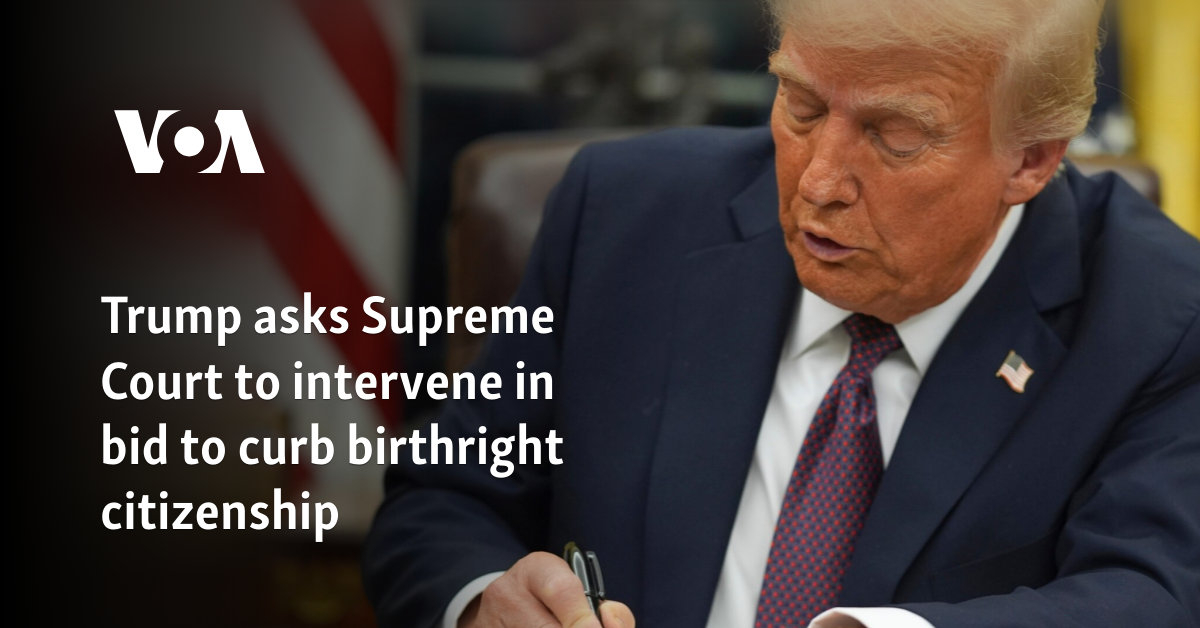Iranian-Born Immigrants Arrested in Trump's Deportation Drive

After Decades in the US, Iranian-Born Immigrants Arrested in Trump's Deportation Drive
In a recent turn of events, Mandonna "Donna" Kashanian, an Iranian-born immigrant who has lived in the United States for 47 years, was arrested by U.S. Immigration and Customs Enforcement (ICE) officers. This is part of President Donald Trump's efforts to expand deportation efforts in Democratic cities, where there is a high concentration of immigrants.
The Impact on Families
Kashanian, who is now in her 60s, has lived in the U.S. since she was a child. She married a U.S. citizen and raised their daughter in New Orleans. However, she was taken into custody while she was gardening in her own yard, leaving her family in a state of shock and confusion.
This is not an isolated incident. Many immigrant families are facing similar situations, causing fear and uncertainty. The recent Supreme Court ruling on birthright citizenship has also added to the confusion and has prompted more phone calls to lawyers from those who could be affected.
The Trump Administration's Stance
The Trump administration has been vocal in their efforts to curb illegal immigration and deport those who do not have legal status in the country. They have also been pushing for the deployment of the National Guard to assist in immigration raids and have targeted cities that are known to be more welcoming to immigrants.
However, this has caused a strain on the economy, as many businesses rely on immigrant workers for their operations. The recent ICE raids have led to the arrest of workers and have caused disruptions in production and services, leaving employers scrambling to find replacements.
The Fight for Justice
Many are fighting back against the Trump administration's aggressive immigration policies. Advocates for immigrant rights have been working tirelessly to provide legal assistance and support to those affected by deportation efforts. There have also been protests and legal battles against the deployment of the National Guard and the recent Supreme Court ruling.
Mahmoud Khalil, who was recently released from a U.S. jail for immigrants, has vowed to continue his pro-Palestinian activism. He was arrested in New York for protesting against the Trump administration's stance on immigration.
The Future of Immigration in America
The Trump administration's stance on immigration has caused a divide in the country and has raised questions about the impact it will have on the future of immigration in America. With the upcoming presidential election, it remains to be seen how this issue will be addressed and whether there will be a shift in policies.
In the meantime, immigrant families like Kashanian's are left to deal with the consequences of these deportation efforts, and the uncertainty and fear that comes with them.
About the Organizations Mentioned
U.S. Immigration
The U.S. Citizenship and Immigration Services (USCIS) is a pivotal agency within the U.S. Department of Homeland Security, playing a crucial role in managing the country's immigration system. Established on March 1, 2003, USCIS took over the immigration service functions from the former Immigration and Naturalization Service (INS) as part of a broader restructuring of U.S. immigration and border security following the creation of the Department of Homeland Security[4]. ### Key Responsibilities USCIS oversees the administration of U.S. immigration policies, including naturalization and immigration services. It processes applications for immigrant and non-immigrant visas, handles asylum and refugee cases, and conducts interviews for various immigration applications[1]. The agency is funded primarily through user fees, with 97.3% of its budget coming from these fees in fiscal year 2020[1]. USCIS operates a network of offices globally, providing services to U.S. citizens and permanent residents abroad[1]. ### History and Achievements Historically, USCIS has been instrumental in shaping U.S. immigration policy and managing the flow of immigrants. Key achievements include the implementation of the Diversity Visa Program, which aims to diversify the U.S. population by offering visas to individuals from underrepresented countries[3]. Additionally, USCIS has streamlined processes for employment-based immigration, ensuring that U.S. employers can access global talent while adhering to labor market conditions[2]. ### Current Status Currently, USCIS faces challenges in managing a complex immigration system, including backlogs in processing applications and evolving policies on asylum and refugee status. Despite these challenges, the agency remains a vital component of U.S. immigration policy, ensuring that the country's immigration laws are enforced while providing opportunities for integration and citizenship[1][2]. ### Notable Aspects Notably, USCIS operates under per-country ceilings, limiting the number of immigrants from any single country to seven percent of the total annual immigration cap, ensuring diversity












